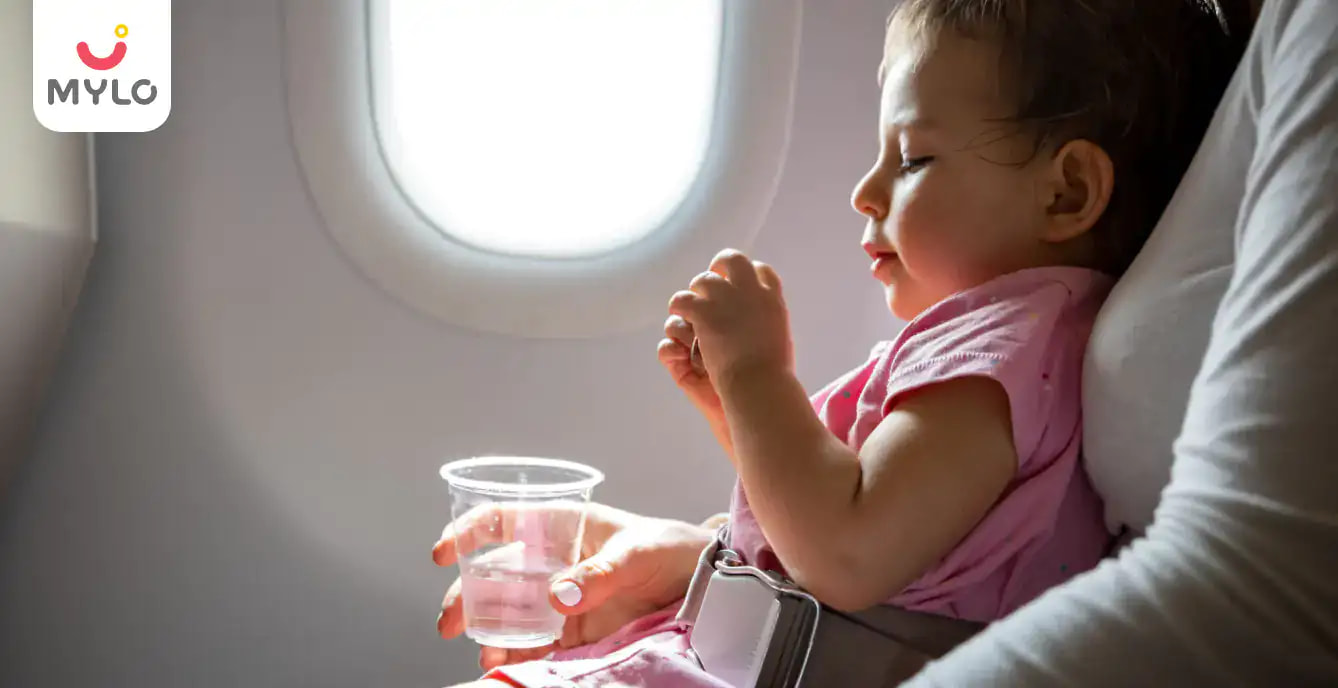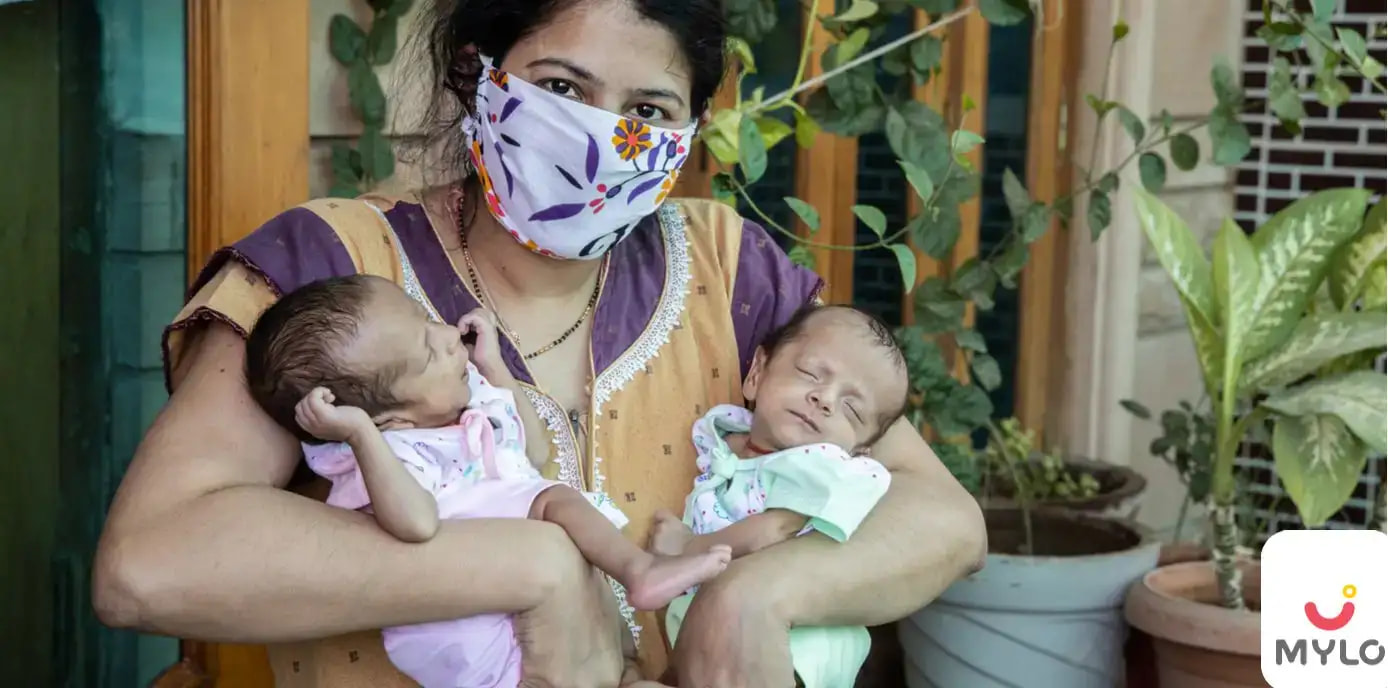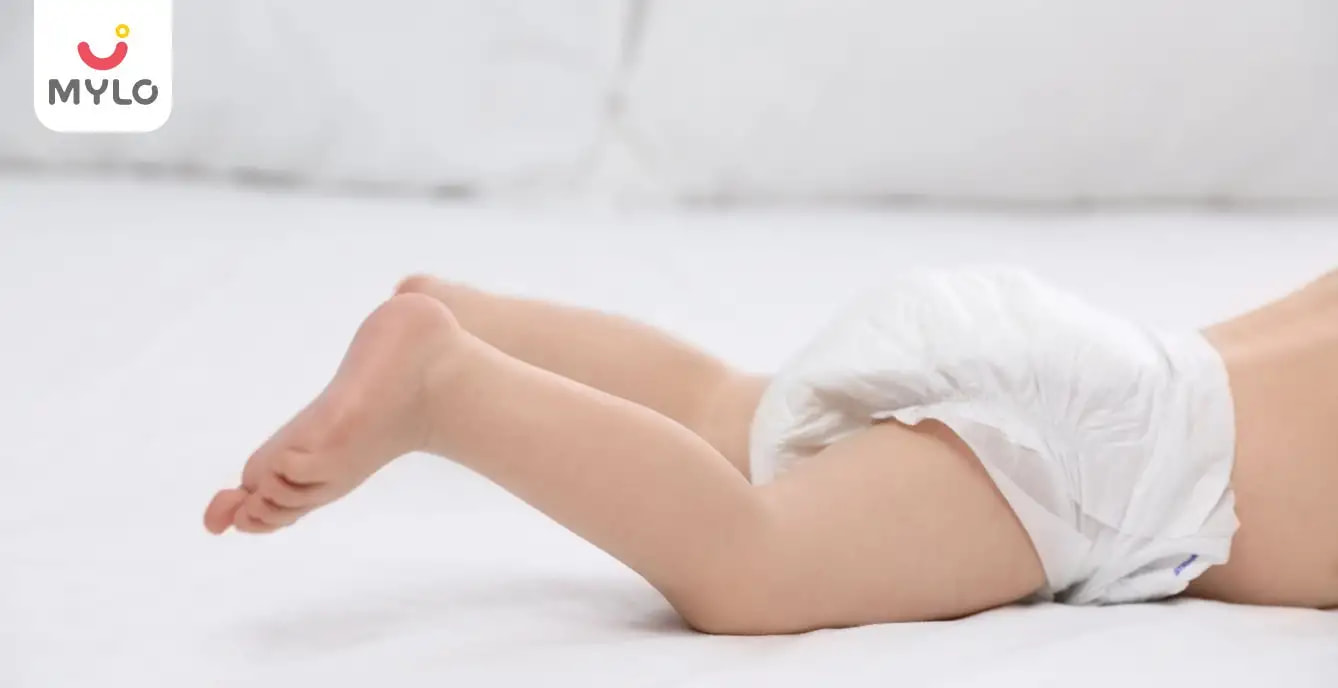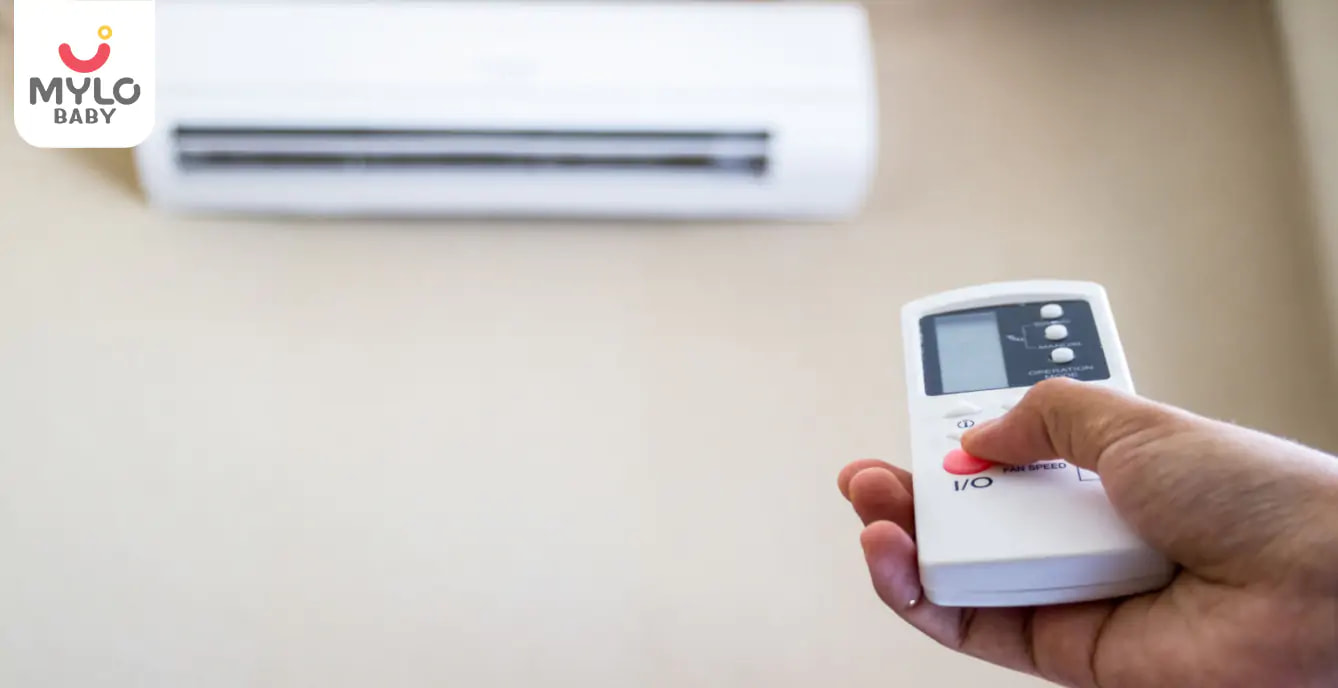Home

Travel & Holidays

When is it Safe to Fly With My Baby?
In this Article

Travel & Holidays
When is it Safe to Fly With My Baby?
Updated on 3 November 2023
Many parents ask doctors, " when do babies start flying,". Pediatricians recommend that you can board a flight together when the baby's immune system is better developed! So, in simpler terms, you can fly with your baby anywhere between four to six months.
Infants with lung or heart ailments might face breathing issues on the flight when the air pressure drops. In such a case, make sure you consult your paediatrician first. Certain airlines also have infant flying policies. Ensure you read them properly before booking tickets.
So, when can the baby start flying? We got that covered for you in the upcoming sections.
How Old Should a Baby be to Fly?
When do babies start flying? Most doctors believe infants aged four to six weeks can efficiently handle flights. However, this guidance is only for infants with no health issues.
Moreover, parents of premature infants with respiratory and lung problems should withhold their travelling plans until the baby completes six months. Doctors also recommend a rest period for all mothers who have faced delivery complications or have had a C-section.
Tips for Flying with a Newborn
-
Go for flights with more extended layovers. It will save you from running from gate to gate with your infant.
-
Dress the baby in layers. You can take some clothes off if your baby gets uncomfortable on the flight.
-
Remember to carry extra baby supplies while travelling with the infant.
-
Book baby equipment such as a bassinet, crib, playpen, and high chair at your destination.
Points to Consider during Air Traveling with Newborn
-
Read your airline's infant travel policy to ensure the safest journey for your baby.
-
Disclose to the cabin crew that you are travelling with an infant.
-
Always book an aisle seat for the comfort and mobility of the baby.
-
Book a flight that matches the sleeping schedule of your baby.
Must-Have Baby Essentials While Flying with your Baby.
-
Diapers, wet wipes, diaper cream, and extra nappies
-
Plastic bags, burp clothes, and bib
-
Extra changing clothes for the baby and you
-
Blankets, pacifiers, and nursing covers
-
Formula or breast milk and snacks such as puffs, crackers, and fruits
-
Jarred or canned baby food and feeding bottles
-
First aid kit and essential medications
-
Ice packs, passenger goody bags, toys, and soothers
Where Should My Newborn Sit?
Bulkhead seat
The bulkhead is the one that is located near the partition that divides the plane. It has larger leg space, offering more room for you and the infant. These seats are usually found in the front part of the seating section.
Moreover, these seats also offer extra oxygen masks for infants sitting on their parent's laps. These seats are usually allotted to babies who are using an in-flight carrycot. However, there are two drawbacks to booking bulkhead seats. Firstly, there is no hand luggage storage space, and secondly, the armrests stay the same.
Back row seats
You can also consider booking the back-row seats for you and your baby. But please note that these seats do not recline fully. Moreover, the loud engine noise can also make the baby restless.
But this loud noise can be a plus point for you if the baby is noisy. Moreover, these seats are closer to the restroom, allowing you to access it quickly without crossing the aisle every time.
Other seats
Consider taking the front sets to ensure a quick speedier gateway after landing. Or you can also go for seats over the wings to ensure minimum turbulence for the baby.
Do They Need Their Seat?
Experts on this matter say yes. Any baby above two should be given a separate seat to sit. It
will keep the baby safe and make the journey enjoyable and comfortable for the parents.
Is there any Risk of Holding a Baby on Your Lap in-flight?
Yes. Flying with a child—no matter how young in your lap can make them vulnerable to injuries. They are also at risk of fatality if the plane hits sudden turbulence. Therefore, consider paying for an extra seat and keep the seat belt fasten when you are not nursing them.
FAQs
1. How do I protect my baby's ears when flying?
Ans. You can breastfeed or offer a pacifier or bottle to suck during take-off. It will help ease the baby's discomfort in the ears.
2. Do babies need ear protection on planes?
Ans. Yes. High noise levels inside the plane can cause hearing damage in kids. Therefore, experts recommend ear muffs while flying.
3. Do airlines provide bassinets for infants?
Ans. These seats are offered on transatlantic flights. However, it requires pre-booking.



Written by
Ravish Goyal
Official account of Mylo Editor
Read MoreGet baby's diet chart, and growth tips

Related Articles
Related Questions
Influenza and boostrix injection kisiko laga hai kya 8 month pregnancy me and q lagta hai ye plz reply me

Hai.... My last period was in feb 24. I tested in 40 th day morning 3:30 .. That is faint line .. I conculed mylo thz app also.... And I asked tha dr wait for 3 to 5 days ... Im also waiting ... Then I test today 4:15 test is sooooo faint ... And I feel in ma body no pregnancy symptoms. What can I do .

Baby kicks KB Marta hai Plz tell mi

PCOD kya hota hai

How to detect pcos

RECENTLY PUBLISHED ARTICLES
our most recent articles

Diet & Nutrition
গর্ভাবস্থায় আলুবোখরা: উপকারিতা ও ঝুঁকি | Prunes During Pregnancy: Benefits & Risks in Bengali

Diet & Nutrition
গর্ভাবস্থায় হিং | ঝুঁকি, সুবিধা এবং অন্যান্য চিকিৎসা | Hing During Pregnancy | Risks, Benefits & Other Treatments in Bengali

Women Specific Issues
স্তনের উপর সাদা দাগ: লক্ষণ, কারণ এবং চিকিৎসা | White Spots on Nipple: Causes, Symptoms, and Treatments in Bengali

Diet & Nutrition
গর্ভাবস্থায় পোহা: উপকারিতা, ধরণ এবং রেসিপি | Poha During Pregnancy: Benefits, Types & Recipes in Bengali

Diet & Nutrition
গর্ভাবস্থায় মাছ: উপকারিতা এবং ঝুঁকি | Fish In Pregnancy: Benefits and Risks in Bengali

Diet & Nutrition
গর্ভাবস্থায় রেড ওয়াইন: পার্শ্ব প্রতিক্রিয়া এবং নির্দেশিকা | Red Wine During Pregnancy: Side Effects & Guidelines in Bengali
- ইনার থাই চ্যাফিং: কারণ, উপসর্গ এবং চিকিৎসা | Inner Thigh Chafing: Causes, Symptoms & Treatment in Bengali
- গর্ভাবস্থায় ব্রাউন রাইস: উপকারিতা ও সতর্কতা | Brown Rice During Pregnancy: Benefits & Precautions in Bengali
- Velamentous Cord Insertion - Precautions, Results & Safety
- Unlock the Secret to Flawless Skin: 7 Must-Have Qualities in a Face Serum
- Unlock the Secret to Radiant Skin: How Vitamin C Serum Can Transform Your Complexion
- Gender No Bar: 10 Reasons Why Everyone Needs a Body Lotion
- Unlock the Secret to Radiant Skin How to Choose the Perfect Body Lotion for Your Skin Type
- Top 10 Reasons to Apply a Body Lotion After Every Bath
- Communication in Toddlers: Milestones & Activities
- How to Improve Vocabulary for Toddlers?
- A Comprehensive Guide to Understanding Placenta Accreta
- Vulvovaginitis in Toddlers Causes, Symptoms and Treatment
- A Comprehensive Guide to Understanding Cerebral Palsy in Children
- Bitter Taste in Mouth During Pregnancy: Understanding the Causes and Remedies


AWARDS AND RECOGNITION

Mylo wins Forbes D2C Disruptor award

Mylo wins The Economic Times Promising Brands 2022
AS SEEN IN

- Mylo Care: Effective and science-backed personal care and wellness solutions for a joyful you.
- Mylo Baby: Science-backed, gentle and effective personal care & hygiene range for your little one.
- Mylo Community: Trusted and empathetic community of 10mn+ parents and experts.
Product Categories
Baby Carrier | Baby Soap | Baby Wipes | Stretch Marks Cream | Baby Cream | Baby Shampoo | Baby Massage Oil | Baby Hair Oil | Stretch Marks Oil | Baby Body Wash | Baby Powder | Baby Lotion | Diaper Rash Cream | Newborn Diapers | Teether | Baby Kajal | Baby Diapers Pants | Cloth Diapers | Laundry Detergent | Lactation Granules |








